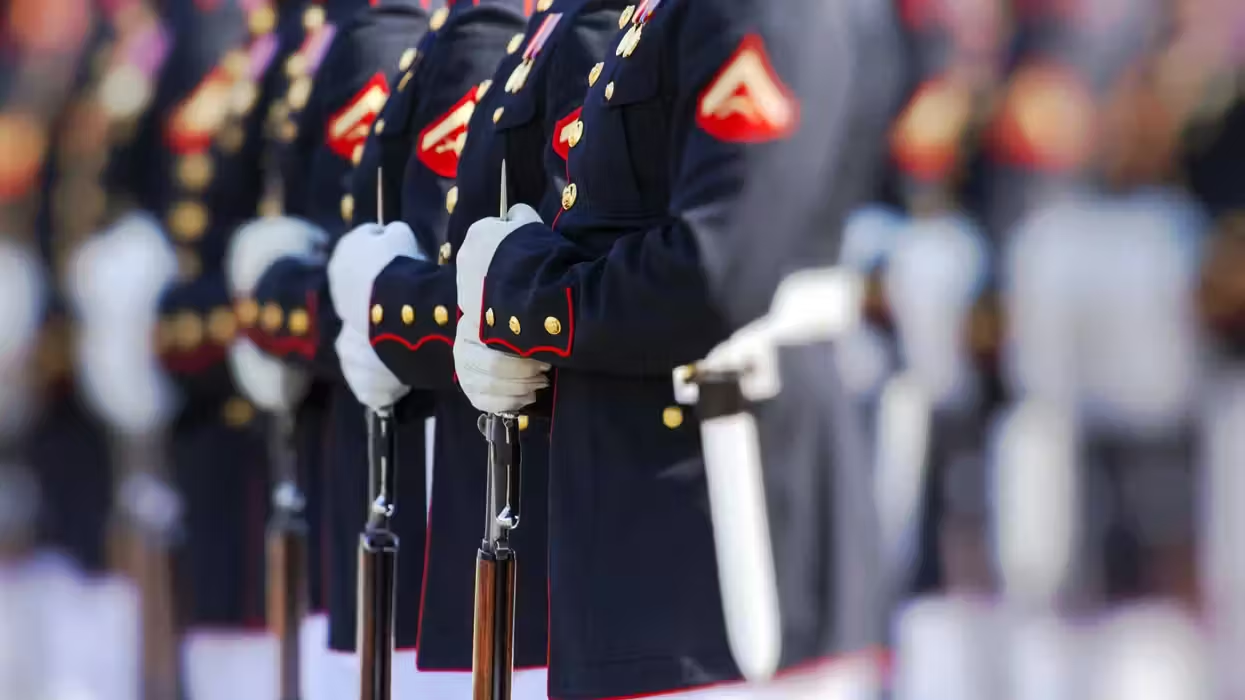
© 2026 Blaze Media LLC. All rights reserved.
Religious liberty is just as threatened after today’s Masterpiece Cakeshop decision
June 04, 2018
“The rights of conscience are, indeed, beyond the just reach of any human power. They are given by God, and cannot be encroached upon by human authority.” ~Justice Joseph Story
Free speech, conscience, and property rights were hanging by a thread before today’s court opinion. They are no more secure after that opinion.
The sexual identity movement is rapidly being enshrined into civil rights and the Constitution, and Americans will continue to suffer from assaults on their conscience rights, even though Jack Phillips of Masterpiece Cakeshop, thankfully, secured a victory in court today. If conservatives were looking for the religious liberty version of what Obergefell did for gay marriage, they will be sorely disappointed.
Anthony Kennedy, the one-man arbiter of the extent of our liberties and natural law, began his opinion siding with the Colorado baker by noting that the court faced “difficult questions” in this case. No, it did not. He arrived at the right conclusions, but his tenuous rationale built on top of his Obergefell opinion, as well as the court’s reluctance to overturn other assaults on religious liberty, should concern conservatives and should serve as the impetus for federal legislation protecting religious liberty.
This narrow ruling will not help religious liberty in America
The court ruled 7-2 that the Colorado Civil Rights Commission singled out Jack Phillips and engaged in overt religious discrimination in its ruling against him. In 2012, Phillips, who owns Masterpiece Cakeshop, declined to bake a cake celebrating the ceremony of Charlie Craig and David Mullins. The Colorado Court of Appeals upheld the commission’s ruling. Today, the Supreme Court reversed that decision.
However, what SCOTUS did not rule on is the idea that a state or federal government has no right to make such a law coercing individuals to serve events that violate their consciences – religious or otherwise. I agree with the ACLU’s reading of the opinion that in fact the court “reaffirmed the core principle” that, generally, speaking, businesses must serve everyone and every event for any reason.
Some conservatives are excited that ultra-liberal justices Elana Kagan and Stephen Breyer joined the majority opinion, but in fact, their support for the opinion only further solidifies the point that this was a very technical decision and will not stop the slew of lawsuits and state laws against the rights of property and conscience. The fact that this was not a narrow majority shows even more that it is a narrow decision on legal grounds.
Kennedy continued peddling his concocted rights from his Obergefell opinion – that there is “authority of a State and its governmental entities to protect the rights and dignity of gay persons who are, or wish to be, married.” It is clearly implied in his opinion that a state could make a facially neutral law demanding that every pharmacy offer all sorts of contraception, that every photographer serve any wedding, and possibly that even every baker bake a cake for a gay wedding. It was just that in this case, the commissioners appear to have applied their ruling arbitrarily and with animus towards Christians. Even in the case of Jack Phillips, the commission appears to have the authority to initiate another hearing on the matter, although it would politically be harder for them to do so now.
Some might suggest that conservatives typically like narrow rulings and should celebrate when the court doesn’t venture into broader policy-making. The problem is that the question of whether Jack Phillips was specifically targeted in the Colorado case is not irrelevant to the broader question of coercing someone to serve an event that violates his conscience; it is built on top of it. There is no way for the court to sidestep this without tipping its hand. The court seems to be clear that there is no categorical First Amendment right of conscience or private property, if such rights would go against the rainbow or abortion agendas.
Indeed, in 2015, in the Stormans case, the Ninth Circuit ruled that a Washington state pharmacy must provide essentially every type of contraception under the sun, even though 30 other vendors sold all the products within five miles. SCOTUS refused to grant an appeal to the owners of the pharmacy. A federal judge in Pennsylvania recently commanded employers in the state to offer contraception coverage in health care packages, despite the president’s order repealing the contraception mandate.
Thomas gets it right on the First Amendment
Whenever you want to see what the court should have ruled, you should take a look at Justice Clarence Thomas’s concurrence. Thomas completely disagreed with the entire premise of the Colorado court that government has the power to coerce individuals into protecting the “dignity” of classes of individuals. “These justifications are completely foreign to our free-speech jurisprudence,” stated Thomas:
States cannot punish protected speech because some group finds it offensive, hurtful, stigmatic, unreasonable, or undignified. “If there is a bedrock principle underlying the First Amendment, it is that the government may not prohibit the expression of an idea simply because society finds the idea itself offensive or disagreeable.”
Thomas noted how Phillips sat down with the customers and promised to make anything they wanted for any other occasion except for a gay marriage ceremony. “It is hard to see how this statement stigmatizes gays and lesbians more than blocking them from marching in a city parade, dismissing them from the Boy Scouts, or subjecting them to signs that say ‘God Hates Fags’—all of which this Court has deemed protected by the First Amendment,” noted the originalist justice. Thomas realizes that the First Amendment protects one’s private property, not the “right” of a person to obtain “dignity” through another person’s property.
Thomas ends his concurrence by ominously warning that although “religious liberty has lived to fight another day” in the case of Phillips, “in future cases, the freedom of speech could be essential to preventing Obergefell from being used to “stamp out every vestige of dissent” and “vilify Americans who are unwilling to assent to the new orthodoxy.” He made it clear that the coming war on religious freedom that he warned about in Obergefell “has already emerged.”
In other words, the legacy of Obergefell, which was about creating not just a right to a piece of paper but an entirely new protected class, is stronger than ever.
So much for Kennedy’s vain promises in Obergefell that “the First Amendment ensures that religious organizations and persons are given proper protection as they seek to teach the principles that are so fulfilling and so central to their lives and faiths, and to their own deep aspirations to continue the family structure they have long revered.”
Given the history of the court on any issue that even tangentially addresses the homosexual agenda, it is clear that religious liberty that goes against that agenda will only diminish, not grow, with every court ruling.
Unless Congress steps in to protect religious and civil liberty, we will lose conscience and property rights forever. As I noted during oral arguments: Relying on the Supreme Court to protect our First Amendment rights will result in the same outcome as our reliance on it to protect the Second Amendment. And in this case, it’s sort of like asking the fox to guard the hen house. It was Justice Kennedy who created this problem; we must not rely on his capricious decision-making to solve it.
Congress failed to pass a single bill protecting religious liberty after Obergefell. Nothing even passed out of a committee, much less received a floor vote. If Congress fails to act now, then it will be clear that when Sam Adams posed the question at the time of the revolution whether “there shall be left to mankind an asylum on earth for civil and religious liberty,” he was fighting his war for nothing.
And if, as conservatives, we are so complacent in our low expectations that we dismiss this warning by noting, “at least it wasn’t worse,” then we don’t deserve the liberties we have.
#mc_embed_signup{background:#fff; clear:left; font:14px}
/* Add your own MailChimp form style overrides in your site stylesheet or in this style block.
We recommend moving this block and the preceding CSS link to the HEAD of your HTML file. */
Want to leave a tip?
We answer to you. Help keep our content free of advertisers and big tech censorship by leaving a tip today.
Want to join the conversation?
Already a subscriber?
Blaze Podcast Host
Daniel Horowitz is the host of “Conservative Review with Daniel Horowitz” and a senior editor for Blaze News.
RMConservative
Daniel Horowitz
Blaze Podcast Host
Daniel Horowitz is the host of “Conservative Review with Daniel Horowitz” and a senior editor for Blaze News.
@RMConservative →more stories
Sign up for the Blaze newsletter
By signing up, you agree to our Privacy Policy and Terms of Use, and agree to receive content that may sometimes include advertisements. You may opt out at any time.
Related Content
© 2026 Blaze Media LLC. All rights reserved.
Get the stories that matter most delivered directly to your inbox.
By signing up, you agree to our Privacy Policy and Terms of Use, and agree to receive content that may sometimes include advertisements. You may opt out at any time.






